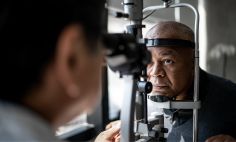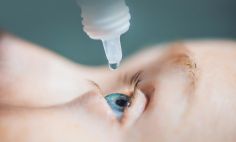Penny A. Asbell, M.D., led a study to see if omega-3 fatty acid supplements really help dry eye.
The Dry Eye Assessment and Management (DREAM) study was funded by the National Eye Institute (NEI). She spoke to NIH MedlinePlus magazine about the study results.
Why did you study omega-3 and dry eye?
A lot of people—both medical professionals and the public—are interested in omega-3 fish oil supplements. They hear about how they do great things for many conditions. At the time we decided to do this study, omega-3 was being touted as something that could help treat dry eye disease.
As an academic and an ophthalmologist [eye doctor], I read everything I could about this, but there hadn't been very much research. And the information available was not very good. That's when I decided to conduct a clinical trial and find out if it's useful for dry eye disease.
What were the results?
Our study does not support use of omega-3 supplements for patients with moderate to severe dry eye disease.
We found that patients who received 3,000 mg of omega-3 for 12 months were not significantly better than patients who received an olive oil placebo.
What other research is going on?
A lot of researchers want to know what causes dry eye disease. And to see if we're wrongly putting a lot of people with dry eye into one group when there are really different categories that would benefit from different treatments.
The analogy I use is that it's like arthritis. People with rheumatoid arthritis are not treated the same way they treat those with osteoarthritis.
They both have joint pain, but we treat them very differently because we know they have different reasons for that pain.
Many people who have dry eye self-treat with over-the-counter eye drops, rather than see an eye doctor. Is this a good idea?
That depends.
When you go to an eye doctor, he or she looks at many things. The doctor looks for glaucoma, cataracts, diabetes-related changes, blood pressure, and more.
An eye doctor can help you learn if you have any of these problems. The data suggest that one of the greatest reasons people go to an eye doctor is the presence of dry eye disease. They want to lessen the pain they're experiencing.
Lubricants—such as artificial tears, gels, and ointments—are available over the counter. So, many people do self-treat. Eye doctors usually see people when the over-the-counter treatments are not working well.
In addition to the DREAM study, NEI supports other research studies related to dry eye. Here are a few:
- Some people with dry eye have low levels of the protein lacritin in their tears. A form of the protein has been developed into eye drops for initial testing as a possible treatment.
- Early-stage research is exploring the role of stem cells. One day, a patient's own cells could be used to develop stem cells that can then be used to rebuild or replace tear-producing lacrimal glands.
- Since corneal nerves (the nerves connected to the outermost eye layer) shrink in dry eye, another research goal is to come up with ways to promote their regrowth. They could also help people suffering from dry eye after cornea laser surgery.







